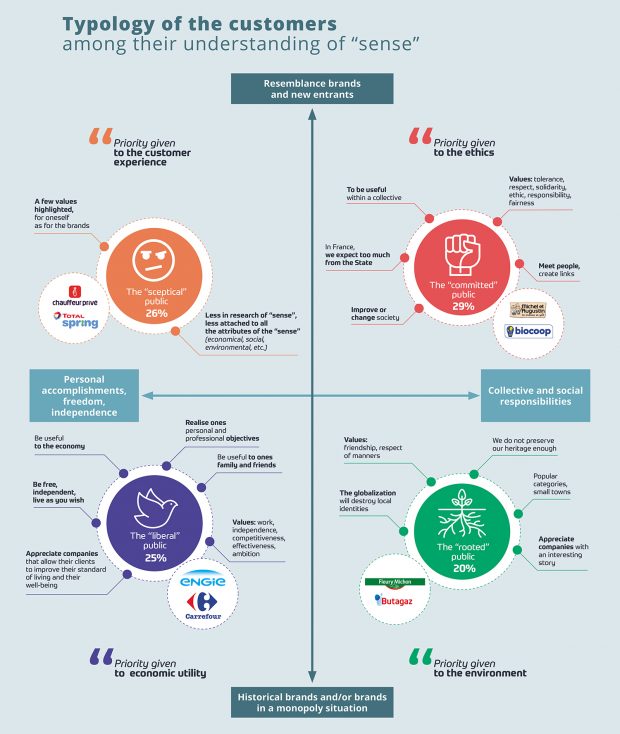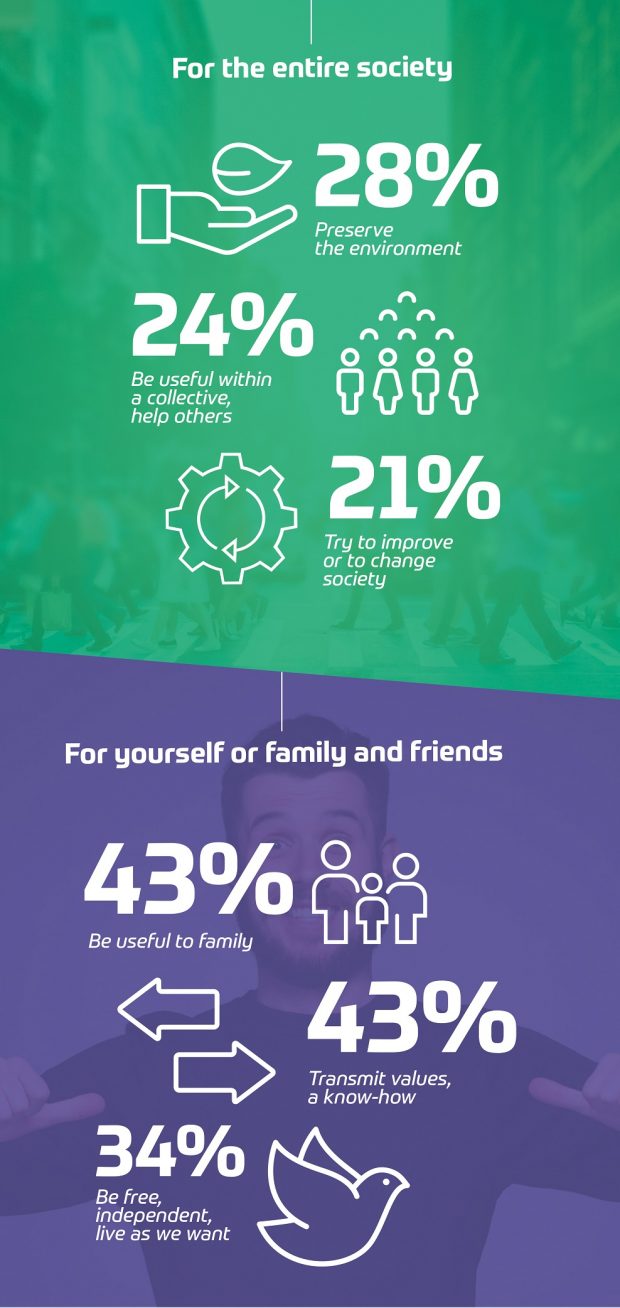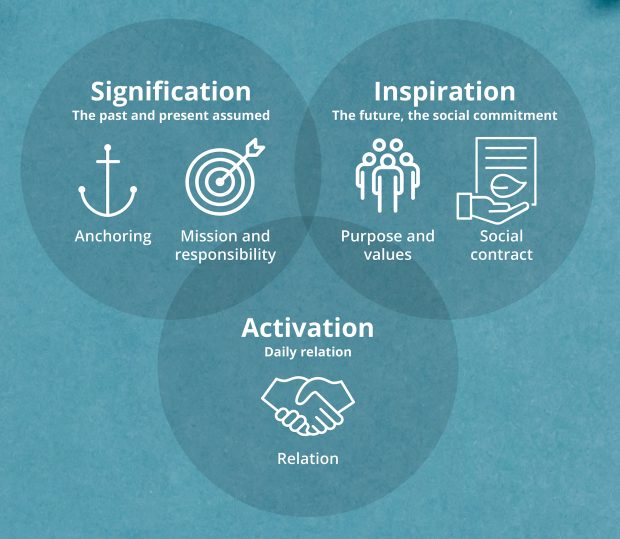First Observatoire sur le Sens®: 6 out of 10 French people expect a brand to have meaning!
At the conference on “How to give meaning to a brand?” held at “La Maison de la Radio”, the communication agency Wellcom unveils exclusively its first Observatoire du Sens® carried out with the ViaVoice Institute. What is meaning for French people? What do they expect from a brand that has a meaning? What is a brand that has meaning? Why and how do you give meaning to a brand? All these questions are approached in this study in order to place the value of the meaning at the centre of people’s minds.
Meaning is in the heart of our societies, of the motivations of employees and customers. How can we understand the world that surrounds us, know in which direction to go and with whom to move forward… if we don’t understand the meaning? Companies have already realised this and from now on have to integrate this dimension into themselves as well as into their brands if they wish to bring about support and commitment from the public.
A growing need for meaning…
The first essential, and relatively agreed upon, findings are: around 6 in 10 French people attach importance to the notion of meaning and this need could be increased for 58 %, compared to only 22 % for whom it could be “neither more nor less important” and the 17 % for whom “less and less important”.
If some findings of the study are agreed upon within the public opinion, above all, we find a large differing of opinion concerning the notion of “meaning”. According to their perception of the notion of “meaning”, customers can be separated into 4 ‘families’:
…But the perceptions of the word and approaches to the need of “meaning” are very different.
The Observatoire du Sens® also revealed that the French public have different perceptions of meaning. If notions of purpose and values are determining factors in the perception of a brand, notions of connections with the expectations of the publics, especially in the social and environmental fields, are essential. Similarly, notions of the brand’s responsibility in their primary mission and of proximity contribute to the construction of meaning.
For French people, meaning is centred on 4 essential values: family (49%), respect of people (42%), freedom (31%) and tolerance (30%). Words automatically used to qualify the need of a meaning show as well a much diversified use of the term, which is both related to a « goal » or to « objectives », to « values », to « work », to « society » or to the « family ». Verbs which are used are also have multiple meanings: « to give », but also « to know », « to live », « to be », « to smell » or « to be able to », that is to say dimensions at the same time aspirational and collective but also personal with a very concrete meaning.
Thus, we find a multi-sided search for meaning
in the different priorities shown by the general public.
But what is a brand that has meaning?
First of all, we noticed that three essential values give meaning to companies and to their brands: the quality (36%), the know-how (33%) and respect (32%).
For the French people who have been interviewed, a brand that has meaning is a brand that takes on its responsibilities:
- It accepts its responsibilities regarding its clients (91%);
- It acts responsibly towards its employees (88%);
- It accepts its responsibilities regarding society in general (84%).
Finally, a brand that has meaning is a brand that is close to its public.
– It maintains a daily relation with them in the physical world, notably such as retail companies, mass-market brands, and car manufacturers or through the internet.
How to give more meanings to a brand?
To position a brand is to give it a meaning and to give it the opportunity to more deeply and more durably affect its public. To give meaning to a brand is an approach which is both simple and complex. It is simple because, before anything else it is about giving it a “common meaning”. Complex because, as mentioned by the Observatoire du sens®, the perception of meaning by the the brand’s public will depend on their profiles and their attitudes regarding meaning.
For French consumers, companies and brands that have the most meaning are those which adopt a process to integrate different approaches to the word meaning to link the identity of the brand to the target public.
|
Meaning for a brand is, beyond its inherent meaning (signification), a story, |
Methodology of the Wellcom / ViaVoice study:
Study realised by ViaVoice for Wellcom, on-line, from the 16th to the 25th of May 2018. Sample of 1,004 people, representative of the French population aged 18 and over. In representativeness by the quota method applied to the following criteria: sex, age, occupation, region and agglomeration category. Study available for media on demand.




